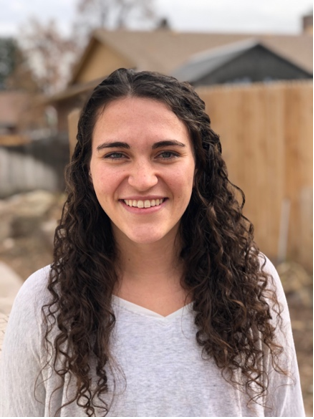CESI-Corning Graduate Fellowship Winner
The CESI-Corning Graduate Fellowship is a multi-year award designed to attract the best and brightest young researchers in energy science, engineering, and materials. Preference is given to second year Ph.D. students working with one or more CESI affiliated faculty members on research that intersects with at least two of the three areas in Corning's strategic research portfolio (consisting of Core Technologies, Manufacturing and Engineering Platforms and Market-Access Platforms). Corning fellows participate in a paid summer internship at a nearby Corning facility each year that they receive the award. The Fellow is guided by a scientific mentor at Corning, along with the Cornell faculty advisor.
 Rileigh Casebolt (2020), Chemical and Biomolecular Engineering
Rileigh Casebolt (2020), Chemical and Biomolecular Engineering
Advised by Tobias Hanrath
Rileigh is from Aurora, Colorado. She received her bachelor's degree in chemical engineering at Bucknell University in Lewisburg, Pennsylvania and is now pursuing a PhD in chemical engineering at Cornell. She decided to apply to the CESI-Corning fellowship because she believes that it is a great opportunity to collaborate with experts in materials science and engineering. This fellowship will allow her to work alongside mentors at Corning to build upon their existing capabilities to develop innovative technologies that could potentially revolutionize energy systems and significantly reduce the carbon footprint, as well as give her an invaluable industry experience.
Rileigh’s project consists of coating Corning’s porous ceramic substrates with a catalyst to create gas diffusion electrodes for use in electrochemical CO2 reduction. She will test the electrodes in flow cell devices under pulsed potentials. Corning is well-known for their materials precision and processing. As part of their environmental technology efforts, Corning has developed porous ceramic substrates and filters to be used in catalytic converters to help automakers meet air pollution regulations. Rileigh expects utilizing Corning's porous substrates to make gas diffusion electrodes under pulsed potential conditions will dramatically improve the current densities, catalyst lifetime, and product selectivity at commercially relevant conditions for electrochemical CO2 reduction.

